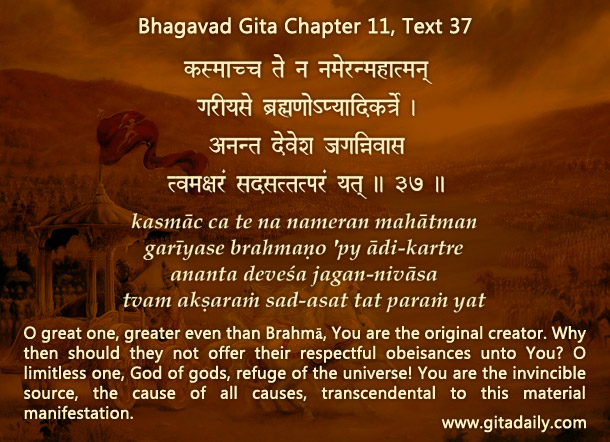“Is the Bhagavad-gita polytheistic?” This question is often raised especially by those coming from the Western intellectual tradition. They are familiar primarily with the rigidly monotheistic system of the Abrahamic religions that rejected as false all gods except one. Within the Western conceptual framework, the only polytheistic religious system was the Greco-Roman one, which was usually seen as featuring a celestial free-for-all. Different gods with their own areas of jurisdiction fought to expand their cosmic terrains and vied for paramountcy, but none succeeded in establishing unrivaled supremacy.
Careful study of the Gita reveals a worldview much more nuanced that simplistic polytheism. The Bhagavad-gita (11.37) declares the Supreme Being, Krishna, to be imperishable and transcendental, existing beyond the fabric of worldly cause and effect. It further glorifies him as being unlimited and being the shelter of the universe – all qualities of the one supreme of monotheism. Thus, Krishna is not one among the many gods of polytheism – he is the one supreme of monotheism, but with the distinctive feature of having other gods not as competitors but as assistants. These other gods are not false gods, but true demigods; they do exist as real persons with powers greater than those of humans and less than those of God.
Krishna engages them as departmental supervisors with finite jurisdictions in the cosmic administration that he heads. If occasionally some of these gods become infatuated by their power and mistake themselves to be supreme, he quickly puts them in their place, as many Puranic narratives attest.
Constitutionally, Krishna is unchallenged and unchallengeable, for his position rests not in the unstable material realm but in the supremely stable spiritual realm. When we understand his unrivaled supremacy, we become undistractedly devoted to him and ultimately attain his abode that is always unaffected by time.

Explanation of article:
Podcast:

Simply amazing and mesmerizing. countless thanks.
Thanks for your kind words, happy to be of service.